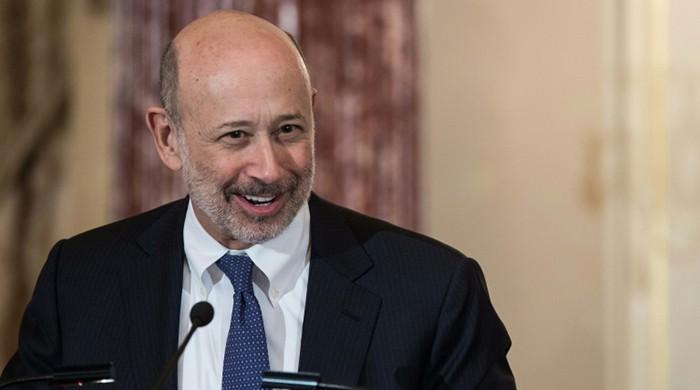Goldman Sachs shares fall as profits up less than expected
April 19, 2017

Goldman Sachs reported sharply higher first-quarter profits Tuesday, but they lagged analysts' expectations following a sluggish performance in trading, in contrast with other large banks that saw trading boom.
Wall Street responded harshly to the report, which stood out as surprisingly weak link in the sector after others reported double-digit increases in trading revenues.
Goldman was the biggest loser in the Dow, slumping 4.7 percent to end the day at $215.59.
Earnings for the quarter ending March 31 surged to $2.3 billion, up 80.2 percent from the same period of last year.
But that jump was due in part to an accounting change in employee share-based compensation that reduced taxes by $475 million.
As a result, the profit translated into $5.15 per share, below the $5.31 estimated by Wall Street analysts.
Goldman chief executive Lloyd Blankfein described the operating environment as "mixed" with "client activity challenged in certain market-making businesses."
But there was "a more attractive backdrop" for debt and equity underwriting, he said.
Goldman reported a middling performance in its institutional client business, with net revenues down two percent from the year-ago period. This division includes trading for fixed income, equities and other security-based products.
The investing and lending business saw better performance, and it scored a big jump in revenues due in part to elevated equity prices.
Goldman president Harvey Schwartz said the bank has learned to accept that trading will fluctuate and has historically avoided making too much of any one quarter of results.
"Quarter to quarter things are going to vary," Schwartz said.
But JPMorgan Chase, Citigroup and Bank of America all have reported strong trading results.
Marty Mosby, banking analyst at Vining Sparks, said banks such as Bank of America and JPMorgan benefited from increased trades connected to corporate clients who took advantage of a dip in long-term interest rates in the middle of the quarter to raise debt.
"Everything was set up for the corporation side to be very active and that's why the universal banks have done a lot better than what you would call the more brokerage type banks," Mosby said.
By contrast, many of Goldman's institutional clients pulled back from trading.
While enthusiastic about the broad pro-business bent of President Donald Trump's administration, brokerages also see question marks around what the Trump agenda will mean on the ground and when, Mosby said.
"There was no clear path," Mosby said, and "it still created every bit as much uncertainty as last year, when everyone thought we were going to fall off the edge into the energy recession."











